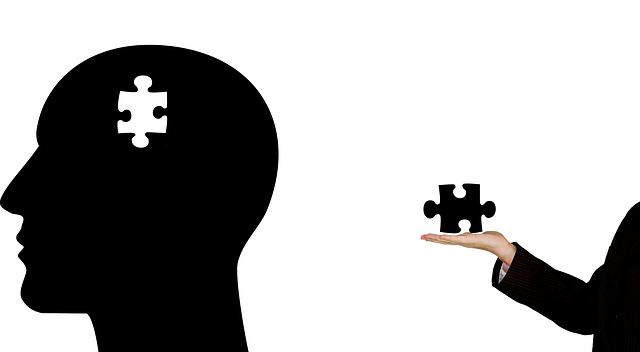CBT therapy is a highly effective, personalized approach to addressing unique challenges in personal growth, mental health, and organizational development. It utilizes a rigorous process of assessment, planning, implementation, and evaluation, focusing on evidence-based practices to modify negative thought patterns and behaviors. By identifying root problems and setting specific treatment goals, CBT provides tailored strategies for enhanced resilience and positive outcomes. This method has proven successful in treating conditions like depression, anxiety, and PTSD, and its accessibility through online platforms has democratized access to powerful mental health tools.
“Unleash the potential of problem-specific targeted therapy, a comprehensive approach transforming mental health care. This article delves into Cognitive Behavioral Therapy (CBT), exploring its power through evidence-based practices and real-world applications. Learn how identifying target symptoms and personalizing treatment plans enhance CBT’s efficacy. Discover the holistic integration of other therapies, strategies for patient engagement, and methods to measure progress. By understanding these aspects, we unlock the full potential of CBT therapy.”
Understanding Problem-Specific Targeted Therapy: A Comprehensive Approach

Problem-specific targeted therapy is a comprehensive approach that focuses on addressing specific challenges and issues within a particular context, be it personal growth, mental health, or organizational development. Unlike general therapeutic methods, this strategy tailors interventions to meet the unique needs of an individual or group, making it particularly effective for those seeking tailored solutions. By identifying root problems and designing targeted strategies, CBT therapy, for instance, becomes a powerful tool in transforming negative thought patterns and behaviors into more adaptive ones.
This method involves a meticulous process of assessment, planning, implementation, and evaluation. It requires a deep understanding of the problem domain, often utilizing evidence-based practices like cognitive-behavioral therapy (CBT) to modify underlying causes rather than just treating symptoms. The result is a personalized roadmap that enhances resilience, fosters positive outcomes, and promotes lasting change in various settings, from clinical practice to corporate training programs.
CBT Therapy: Unlocking the Power of Cognitive Behavioral Techniques

CBT therapy, or Cognitive Behavioral Therapy, is a powerful tool in the realm of mental health treatment. It focuses on identifying and changing negative thought patterns and behaviors that contribute to various problems, such as depression, anxiety, and even specific phobias. By helping individuals understand the connection between thoughts, feelings, and actions, CBT enables them to develop healthier coping strategies.
This therapy is problem-specific, meaning it’s tailored to address particular issues a person is facing. Through structured sessions, therapists guide clients to challenge negative thoughts, replace them with more realistic and positive ones, and learn new behaviors that promote well-being. The power of CBT lies in its ability to empower individuals to take control of their mental health and lead more fulfilling lives.
Identifying Target Symptoms: The Foundation of Effective Treatment

Identifying target symptoms is the cornerstone of effective problem-specific targeted therapy, such as Cognitive Behavioral Therapy (CBT). It involves pinpointing the specific behaviors, thoughts, or emotions that contribute to an individual’s challenges. Through careful assessment and observation, therapists can uncover these target symptoms, which serve as the focal point for treatment. By understanding the root causes, CBT practitioners can develop personalized strategies to address them directly.
This process ensures that interventions are tailored to the unique needs of each client. For instance, if someone struggles with social anxiety, the target symptoms might include specific triggers like public speaking or meeting new people. CBT therapy then focuses on modifying these symptoms through techniques like cognitive restructuring and exposure therapy. This precise approach maximizes the effectiveness of treatment, enabling individuals to manage their conditions more efficiently.
Personalizing Treatment Plans: Tailoring CBT to Individual Needs

Personalizing treatment plans is a key aspect of problem-specific targeted therapy, especially when employing Cognitive Behavioral Therapy (CBT). Unlike one-size-fits-all approaches, CBT therapy recognizes that each individual’s experiences and thought processes are unique. Therefore, tailoring cognitive behavioral therapy to meet specific personal needs is essential for effective outcomes. This involves a collaborative process between therapist and client where they work together to understand the underlying causes of distress or mental health challenges.
Through this partnership, treatment goals are set, focusing on specific problems while also considering individual strengths and weaknesses. Therapists then design interventions that target maladaptive thoughts, behaviors, and emotional responses unique to each person. This personalized approach enhances the client’s engagement in therapy, fosters a deeper understanding of their issues, and ultimately improves their ability to manage symptoms and achieve long-lasting change.
Evidence-Based Practices in CBT: Ensuring Efficacy and Success

Evidence-Based Practices in CBT play a pivotal role in ensuring the efficacy and success of targeted therapies. CBT focuses on identifying and modifying negative thought patterns and behaviors, backed by extensive research and clinical trials. This structured approach has proven effective for various mental health conditions, including depression, anxiety disorders, and post-traumatic stress disorder (PTSD). Therapists utilize specific techniques such as cognitive restructuring, exposure therapy, and behavioral activation to challenge unhelpful beliefs and promote healthier coping mechanisms.
By adhering to evidence-based practices, CBT therapists can enhance treatment outcomes and personalize strategies for individual needs. Regular assessment and adaptation of these techniques based on client progress are key to achieving successful long-term results. This data-driven approach allows for a tailored and effective treatment plan that addresses the specific challenges faced by each unique patient.
Integrating Other Therapies with CBT: A Holistic Approach to Healing

In many cases, combining Cognitive Behavioral Therapy (CBT) with other therapeutic approaches can lead to more effective and lasting results. Integrating different therapies allows for a holistic treatment plan that addresses multiple aspects of an individual’s well-being. For instance, while CBT excels at identifying and changing negative thought patterns, art therapy or music therapy can provide a creative outlet for expressing emotions and processing traumatic experiences. This multifaceted approach ensures that healing occurs not just cognitively but also emotionally and sometimes physically.
By intertwining therapies, healthcare professionals can tailor treatments to suit the unique needs of each patient. For example, someone struggling with anxiety might benefit from CBT sessions alongside mindfulness meditation practice, which can deepen their ability to manage stress and fear. This holistic integration prepares individuals to face challenges in a more balanced and resilient manner, promoting long-term mental health and overall well-being.
Patient Engagement and Motivation: Overcoming Barriers to Change

Patient engagement and motivation are critical components of problem-specific targeted therapy, such as CBT (Cognitive Behavioral Therapy). Overcoming barriers to change is essential for successful treatment outcomes. Many patients face challenges that hinder their active participation in therapy, including resistance to new ideas, fear of emotions, or uncertainty about the process. Healthcare providers must create a supportive and non-judgmental environment to foster trust and encourage open communication. Personalized approaches, clear goals, and regular feedback can significantly enhance patient motivation by demonstrating the relevance and benefits of therapy.
Strategies to overcome barriers include educating patients about the therapeutic process, setting achievable milestones, and incorporating self-monitoring tools. Regular check-ins allow therapists to track progress, address concerns promptly, and adjust treatment plans as needed. By actively involving patients in their care and motivating them to engage with new perspectives and behaviors, targeted therapies can lead to more meaningful improvements in mental health and well-being.
Measuring Progress and Adjusting Strategies: Continuous Improvement in CBT

In the realm of CBT therapy, measuring progress is a dynamic process that evolves as the client’s journey progresses. Therapists employ various tools to assess improvements, such as standardized assessments and clinical interviews. By regularly evaluating these aspects, therapists gain insights into what strategies are effective and which may need refinement. This continuous improvement approach ensures that the CBT therapy remains tailored to the individual’s specific needs.
Adjusting strategies based on measured progress is a key aspect of successful CBT. If certain techniques prove ineffective or if new challenges emerge, therapists can pivot and adapt their approaches. This agility in treatment planning allows for more precise targeting of problem areas, enhancing the overall effectiveness of CBT therapy.
Real-World Applications: CBT Therapy in Clinical Practice and Daily Life

CBT therapy, as a problem-specific targeted therapy, has found widespread real-world applications, revolutionizing clinical practice and permeating daily life. In clinical settings, Cognitive Behavioral Therapy (CBT) is a game-changer in treating various mental health disorders such as depression, anxiety, and post-traumatic stress disorder (PTSD). By focusing on identifying and changing negative thought patterns and behaviors, CBT equips individuals with effective coping strategies to manage their conditions.
Beyond clinical confines, CBT therapy has seamlessly integrated into everyday life, offering practical solutions for common challenges. From managing work-related stress to overcoming social anxieties, CBT provides a structured framework for personal growth and well-being. Its accessibility through online platforms and mobile apps has further democratized access to this powerful therapeutic tool, enabling folks to take control of their mental health in a convenient and effective manner.
